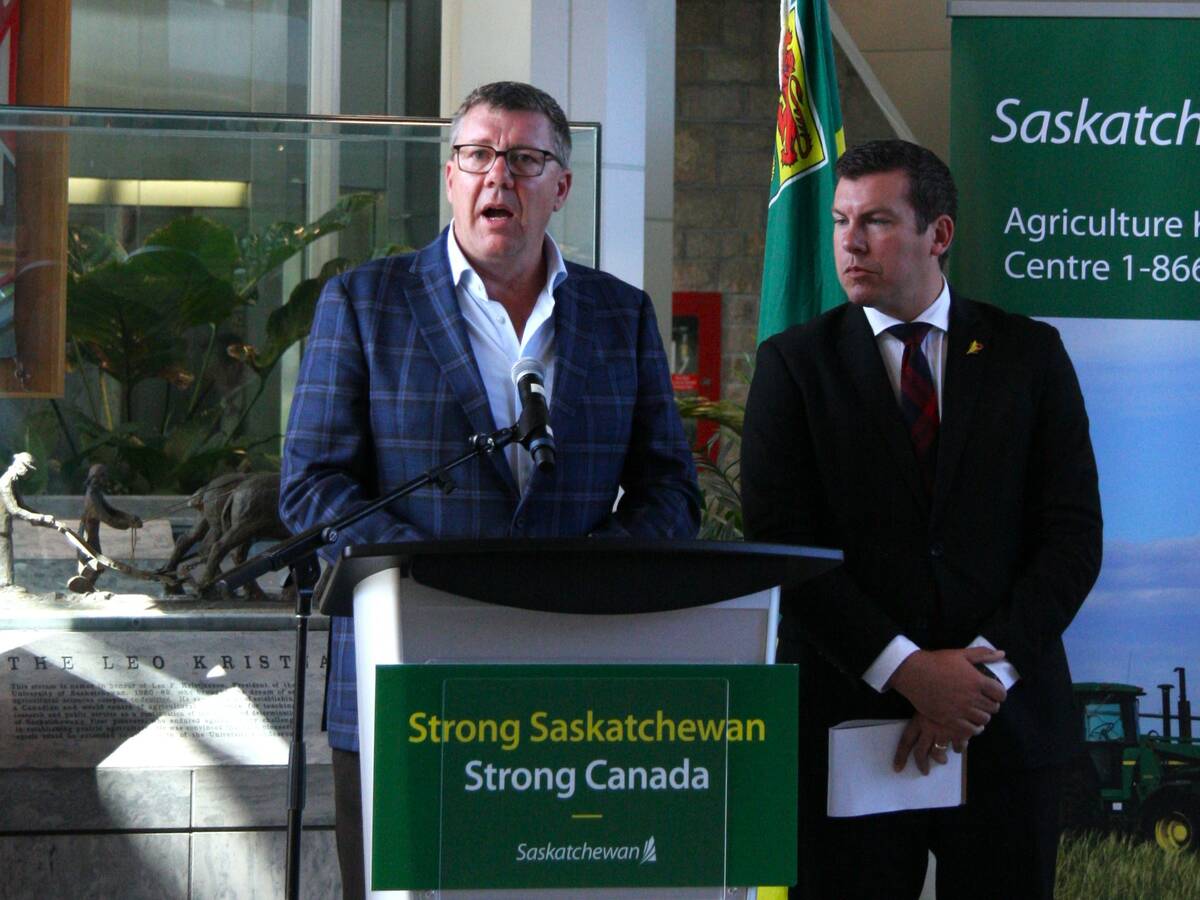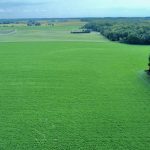A meeting between the Saskatchewan and federal governments as well as industry organizations was held yesterday in Saskatoon to discuss ongoing canola challenges with China as well as trade with the United States.
Saskatchewan Premier Scott Moe, along with provincial trade and export development minister Warren Kaeding and agriculture minister Daryl Harrison, met with federal agriculture minister Heath MacDonald and Kody Blois, parliamentary secretary to the prime minister.
Industry organizations involved in discussions included Viterra North America/ Bunge, Richardson, Parish and Heimbecker, the Canola Council of Canada, Saskatchewan OilSeeds, the Canadian Canola Grower Association, Louis Dreyfus Canada, AGT Foods, G3 and Paterson Global Foods.
Read Also

Canadian-bred cow wins World Dairy Expo Holstein show
A cow bred in Saskatchewan, Lovhill Sidekick Kandy Cane, is the Grand Champion Holstein at the 2025 World Dairy Expo.
“We must remember the size and scope and the impact of just the canola industry alone in Canada,” said Moe in the press conference following the meeting.
“It is a $43 billion industry employing over 200,000 Canadians each and every day.”
Moe said there are many important actions to be taken because as much as he hopes for a quick resolution, it’s likely the tariffs will last longer than industry and government would like, which is often the case with China.
He said the important actions to be taken can be broken into three key points.
First is to protect market share and market access to significant export partners such as the U.S. and China.
To do so, he will be going to China in the following weeks to engage with Chinese counterparts and be in discussions with prime minister Mark Carney regarding the talks Carney will have with Chinese president Xi Jinping.
To enable this trade trip, other international trade engagements have been altered.
“We have amended that to some degree so that we can be in China in the next number of weeks and potentially back before the end of the calendar year, all in an effort of advancing Canada-China trade relations specific to canola, which is the largest export that we have from this province, and I dare say, the largest exports that we have from Canada into China,” Moe said.
Other key discussion points included the development of further support for the canola and the exporting industries and to use the regulatory environment to ensure that opportunities for investment, sustainable production and diversified export continue and can grow.
Blois called it a “very constructive and collaborative discussion,” noting the federal government will be doing what it can to support Prairie farmers.
He said the federal government will also be meeting with Chinese authorities in the coming weeks. One opportunity for this is the Joint Economic and Trade Commission, which will be happening next week.
“This is an opportunity for Canadian authorities and Chinese authorities to engage on what we see as differences around trade,” Blois said.
“The premier has highlighted the desire for more federal presence. The prime minister’s cognizant of this because we know what that market impact means for Canadian canola farmers.”
Also in the coming weeks, Carney is expected to be in Western Canada to speak with industry and learn what producers and processors would like to see.
















